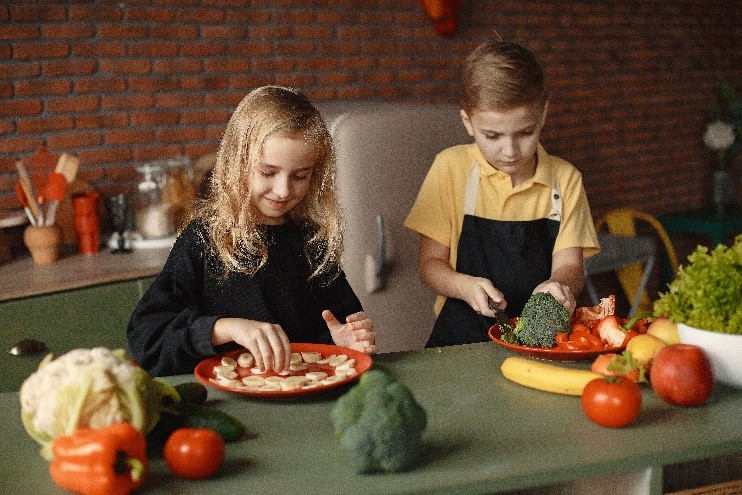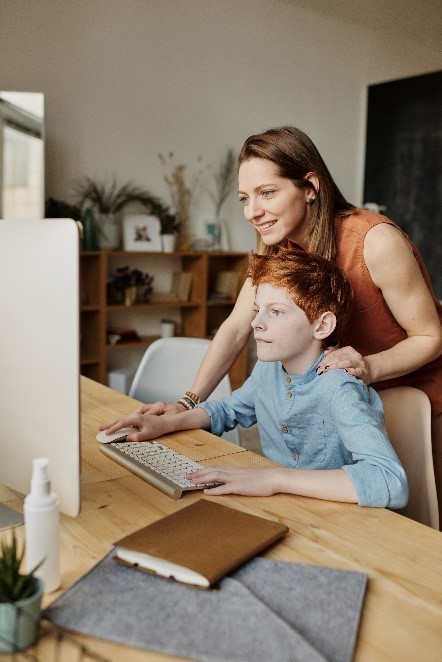COVID-19 has put the brakes on normal life. Parents and students have had to adapt, and everyone is experiencing things differently. In an attempt to make sense of everything, we’ve come up with a checklist to help you keep your kids healthy when school starts in the fall. Not everyone will be going back to brick-and-mortar schools, so we have separate lists for homeschool students as well.
Should My Child Go Back to School?
Before making the decision to send your child back to school, make sure you consider the following questions:
- Is my child or someone in my family showing COVID-19 symptoms? If so, it might be best for them to stay home.
- How does my child get to school? If they take public transport like a bus, consider having them wear a mask to reduce the risk of infection.
- Does my child know the importance of physical distancing? Show your child what physical distancing looks like and make sure they know why they’re doing it.
- Can my child wash their hands properly? Give your child a lesson in proper handwashing procedure and have them show you their skills.
- Does my child know how to cover their coughs/sneezes? Demonstrate how to cough/sneeze into your elbow to reduce the risk of spreading infection.
- Is my child comfortable going back to school? If your child is worried about the dangers of going back to school, it might be best to try online school instead.
Back to School Bag Checklist
If you’ve decided to send your child back to school, you’ll want to consider packing their bag with the following items to keep them safe and healthy:
- Well-balanced lunch (fruits, veggies, protein)
- Water bottle (with their name on it)
- Mask
- Tissues
- Moist towelettes
- Hand sanitizer
I’ve Decided to Keep the Kids Home…Now What?
If you would like to keep your kids at home this fall, we’ve got you covered! There are plenty of alternative education and online learning options available to keep the kids in school from home. Here’s a list of ways to make your homeschooling super effective (and fun, too!):
- Choose a quiet spot. Pick a part of the house away from frequently used hallways and other noise-producing areas.
- Limit distractions. Clear the work surface of toys and clutter, turn the TV off, and keep cell phones out of reach.
- Make a plan. Create a schedule for the day so your child knows what they will be doing. This will help them stay focused and learn how to set goals.
- Schedule time for physical activity and free time. Brains work best with a little exercise, so make sure the daily routine allows for physical activity. Free time doesn’t necessarily have to be educational, but bonus points if it is!
- Take the classroom outside. Teach biology with the plants and animals in the backyard, rattle off multiplication tables while bouncing on the trampoline, or discuss the themes of a novel while going for a walk. These are all fun ways to keep education interesting!
How to Stay Mentally Healthy
While taking precautions to stay safe, it’s easy to neglect our mental and emotional health. Here are some ways to maintain a healthy headspace:
- Encourage socially distant socializing with friends and extended family. Keeping in contact with people outside your immediate family is a great way to stay grounded. Phone calls, Facetime chats, and online gaming sessions go a long way toward maintaining emotional and mental health.
- Keep everyone engaged. While practicing social distancing, it’s easy to feel emotionally distant too. Eating dinner together, playing board games, and watching movies as a family are all great ways to keep everyone connected and engaged.
- Check in on each other. Open avenues of communication about mental and emotional health. It’s not always easy to tell how someone is feeling, so make sure your family is comfortable talking about it.
- Stick to a routine. Chaos and disorder are two of the top contributors to mental instability, so it’s a good idea to make a plan and stick to it. Well-defined wakeup times, bedtimes, class times, and playtimes will help keep everyone organized.
- Take time to relax. This sounds trivial, but it’s easy to forget to relax these days. COVID-19 consistently dominates the news and induces stress, so take some time to unplug and unwind. Read a book, take a bath, go for a hike—do what makes you feel good!
- Eat a balanced diet and exercise regularly. Our bodies and minds are closely linked, and what benefits one certainly benefits the other. Fuel your body with healthy foods and stay active to keep your mind fresh.
- Learn about mental health. Research the signs and symptoms of emotional and mental instability before things get out of control. The more you know, the better equipped you will be to confront challenges as they arise.
To make the transition easier, we’ve also come up with a list of back to school tips and tricks. If you would like extra help with homeschooling, our twisted tutors are well versed in distance learning. They are experts in online tutoring, and they encourage you to try it out. You’ll be glad you did!
Don’t hesitate to contact us with further questions. We’d love to hear from you!

